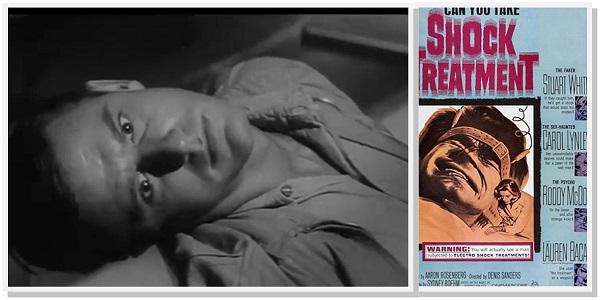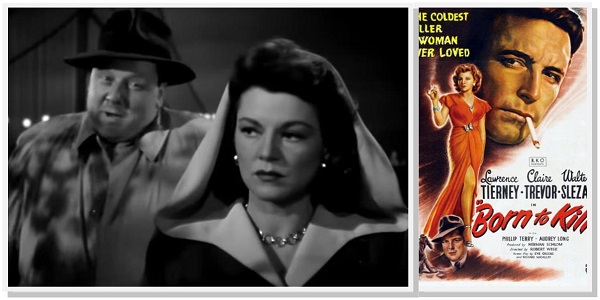Faking insanity is one thing, and quite a useful one for many criminals; but blocking insanity while actually placed among the insane 24/7 can be a challenge not many would like to take. In Denis Sanders’ Shock Treatment (1964), the protagonist opted for it, and found firsthand what it means.
In this story, a professional actor Dale Nelson (Stuart Whitman) is hired by a murdered woman’s manager (Judson Laire) to fake insanity in order to be institutionalized at the same facility where the murderer Martin Ashley (Roddy McDowall) has been placed. While Dale is tasked with learning from Ashley the location of the victim’s hidden $1 million, he faces the dark prospect of losing his sanity and freedom to the institution’s medical chief, Dr. Edwina Beighley (Lauren Bacall) – a psychiatrist whose treatments have no boundaries.
If happy endings were up for discussion in the eligibility of a movie as a noir, Sanders’ Shock Treatment is a good candidate. The noir elements are prominent – the hidden/concealed identity, intent to commit a crime, the plan gone wrong, entrapment by a woman (femme fatale equivalent), and the dark tone in cinematography as well as the plot. Those who exclude happy endings from noir eligibility can contend it’s a thriller falling short of noir. And one can even argue a case that the ending here is not that happy after all.
Happy or not and/or to what degree, the ending is notably symbolic when the three lead characters invested in the pursuit of money get to the spot where the million is buried. But spoilers better be left for another time.
For noir or thriller, or both, Shock Treatment by Denis Sanders offers an interesting story with memorable characters in a web of conflict around wealth and sanity, all well-crafted and dramatized skillfully on the screen.




